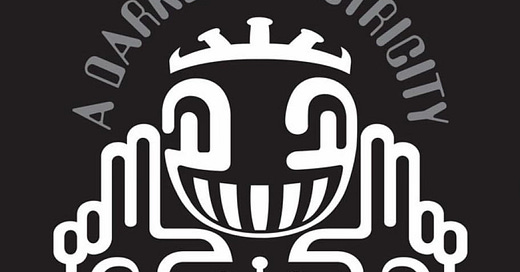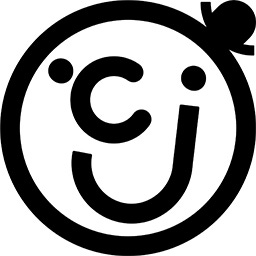Q+A: Mark Angelo Harrison on Telling the Spiral Tribe Sound System Story
Interview with a free party legend!
Today, we are happy to present an interview with Mark Angelo Harrison, author of A Darker Electricity: The Origins of the Spiral Tribe Sound System (Velocity Press)! This book is truly a page-turner that will bring you straight into the heart of the UK’s free party sound system culture in the Nineties.
Tamara Palmer/Music Book Club: What was your process like in writing your book? How long did it take, and did you write it under commission from Velocity or did you start writing before it had a home?
The history of the underground dance music scene and the renegade free party movement has, at best, been intentionally marginalised by the commercial mainstream and at worst (as in my case) criminalised by the state.
Two reasons for this come to mind. One is that there’s no money to be made from what is given freely. And two, the political establishment is hostile to any mass movement that unifies, mobilises and enables large groups of people outside of its control. They call it lawlessness, I call it community.
As pioneers of this renegade culture and makers of our own music, it was crucial for me to get the Spiral Tribe story right. It’s not just about the adventures we had in the subterranean world of London and our secret parties out in the wilds. Not just about our daily struggle to stay one step ahead of the police and the drug dealers. But also a story about our creative drive, our political awakening and the road we took to building one of the world’s most heavily outlawed, yet enduring, underground cultures.
To do the story justice I not only interviewed those that were involved but I also went back to college to master the art of communication, gaining a diploma in Creative Writing and English Literature from the Open University. I was also fortunate enough to be awarded a bursary from Avon plus a two month residency with the French publisher, Au Diable Vauvert.
This learning curve took me three years to complete but I finally felt qualified to begin writing the book. The next part of the process was to collate the interviews and make an archive of our photos, flyers and newspaper cuttings, as well as my own sketchbooks from the ‘90s. Though the book is my personal memoir, I wanted it to be accurate in every detail.
This research and planning phase, probably took me another two years. Unfortunately, about halfway through the first draft, my personal circumstances drastically changed and I could not afford the time to finish the book.
Colin at Velocity Press came to the rescue with a small advance which enabled me to spend the next year finishing what I’d started.
Harry Harrison’s Dreaming in Yellow: The Story of DiY Sound System, which is also on Velocity Press, is a beautiful counterpart to your book! I have recommended them both to a lot of people. Did you enjoy reading each other's books and seeing some of the same topics and events discussed from a different angle?
Yes, I really enjoyed reading Harry’s history of DiY, as it was him and his crew who’d helped inspire us to escape the confines of urban warehouse parties and reconnect with nature. Although at the time (1990–91) our paths only briefly crossed, there was always a sense that we were part of the same far flung community. Each of us in different parts of the country bringing the new free party culture into being. A culture which reinvigorated the free festival movement that, in the previous decade, had been brutally oppressed by the state.
We didn’t know each other personally (though we briefly met when Harry gave our van a jump start), which makes it even more interesting to read how we shared a similar world view — despite our different music policy. Spiral Tribe were more focused on giving every kid that got through the police lines with their records, the opportunity to play. This meant that our music was more of a mix, which included the very latest Breakbeat/proto-Jungle and Drum n Bass. I guess we had more of an edgy reputation, aligned, as we were, with the often ostracised urban youth of the inner cities.
How was the experience of putting your audiobook together?
Recording the audiobook was an amazing experience — all the more so because Matt Ward, studio engineer, made it so. Without Matt’s technical brilliance, creative input and infinite patience, it would have probably been a long hard slog! But despite the many hours of reading and recording we had a lot of fun putting it together with new soundscapes and original Spiral music.
What is your musical diet like these days?
I’m still very much into the music of my formative years. It might surprise Harry to know I’m in love with the early House and Acid classics. Another little detail I learnt from Harry’s book was that he and the DiY crew also frequented the Haçienda in Manchester. I lived two minutes from the club which put it at the centre of my social circle. That early music inspires me as much today as it did back then. And all the music that we played at our renegade parties still has a place deep in my heart.
Today I’m actively involved with many of the original Spiral artists and DJs (we still work together as SP23). And I’m also very much inspired by the younger generation of new artists and free party crews. My current favourite, if I had to pick one, is the live artist Puçanga. Dark electronica, rap and haunting vocals. A hard-hitting intersectional feminist with a deep respect for all who have suffered and died in the revolutionary struggle against oppression.
Do you have any favorite music books (classic or current) that you could recommend to our readers?
I’d put Harry’s book Dreaming in Yellow at the top of my recommendations. I tend to listen to music rather than read about it, but I’m very interested in books documenting the people’s history. Real history — not the twisted narratives of the ruling elites. In that vein, I’m very much looking forward to Keith Robison’s Take No Prisoners about the Desert Storm Sound System – another gem from Velocity. Colin, the publisher, recognises the cultural importance of the underground movement and understands that it’s very often the primal source of new ideas and musical styles. Mainstream media missed a trick when it adhered to the establishment’s policy of trying to silence us. DiY, Desert Storm, Spiral Tribe — and Velocity Press — we know how to make some fuckin’ noise – even within the pages of a book!
Previously in our Q+A series:
Lyndsey Parker on Writing a 'Stranger Than Fiction' Memoir with Mercy Fontenot
Christina Ward on Running Feral House, a 36-Year-Old Indie Book Company
Ali Smith on Speedball Baby and Telling Stories Without Shame
Arusa Qureshi on Her Love Letter to Women in UK Hip-Hop
Lily Moayeri on Her Favorite Music Books and Writing from a Personal Place
Megan Volpert on Why Alanis Morissette Matters and Writing 15 Books in 18 Years
Mark Swartz on Biggie + Yoko Ono as a Crime-Fighting Duo and Other Fictional Ideas
Annie Zaleski on Cher, Stevie Nicks and Pushing Past Writing Fears
Nelson George on His Next Book and Making Mixtapes in Paper Form
Michaelangelo Matos on Writing and Editing Music Books









